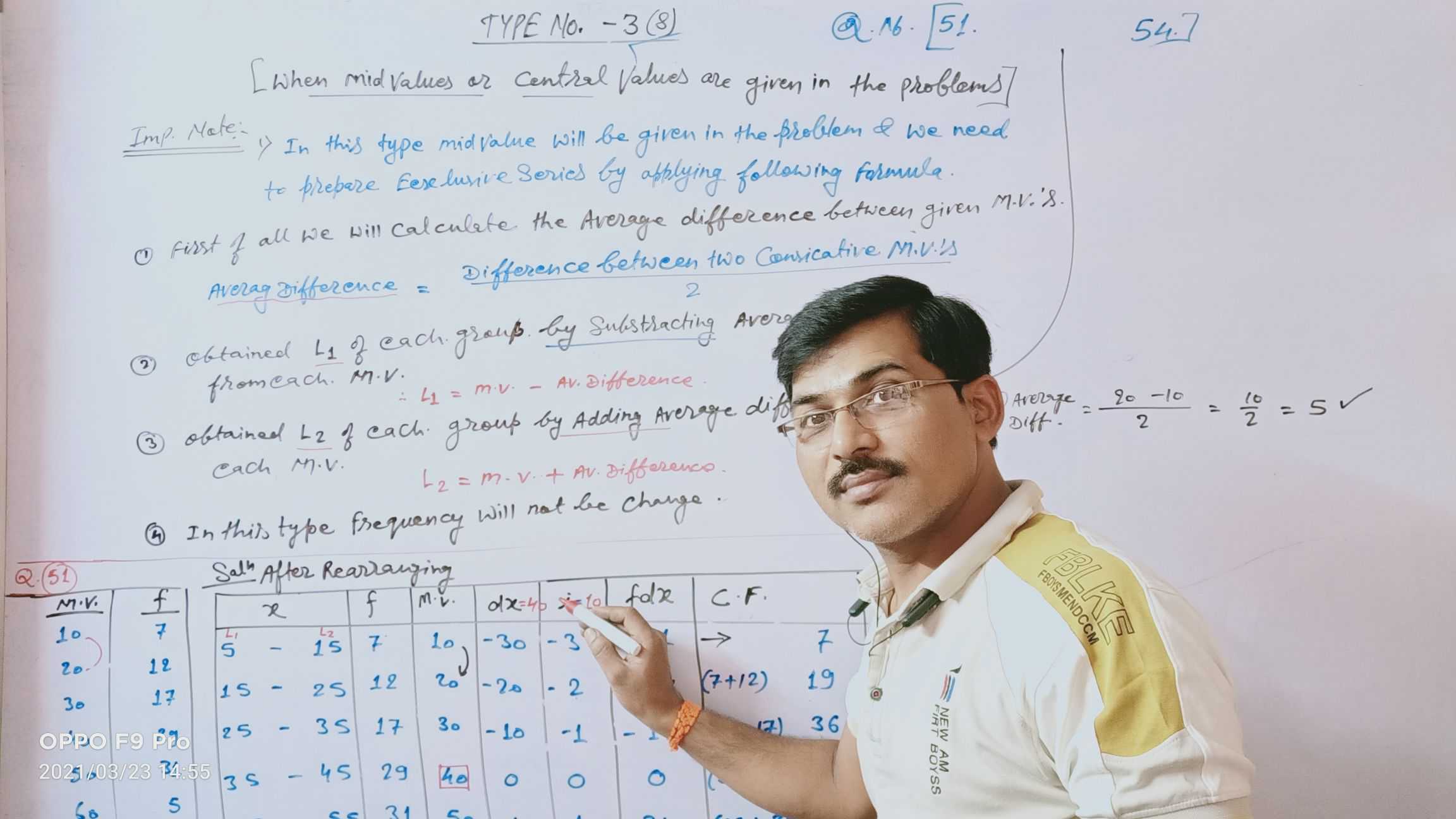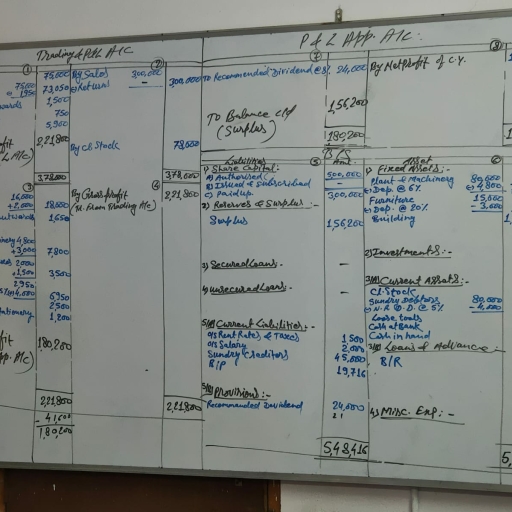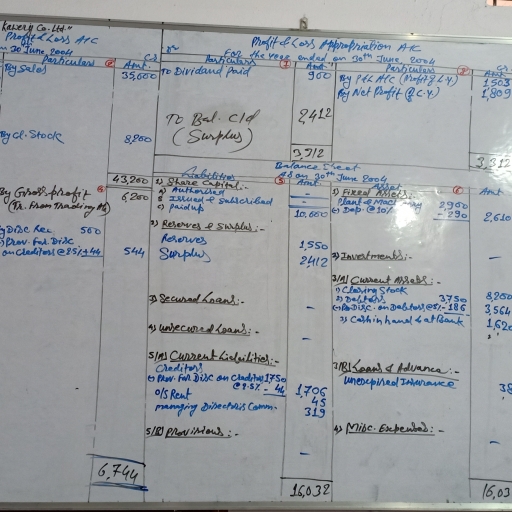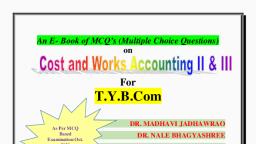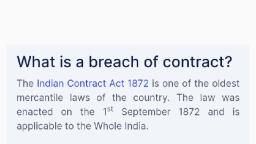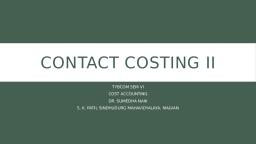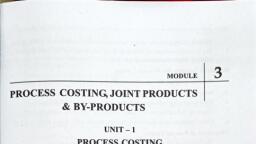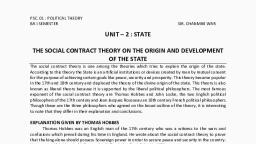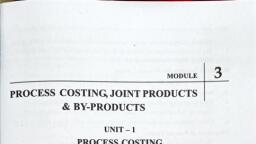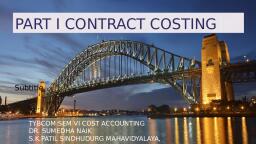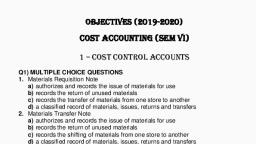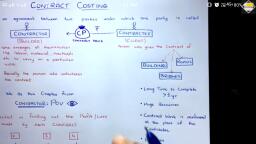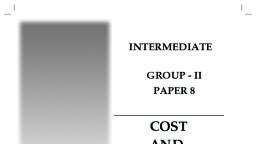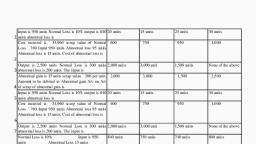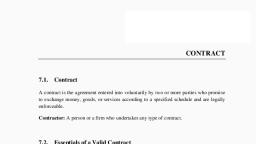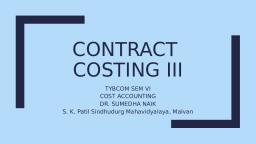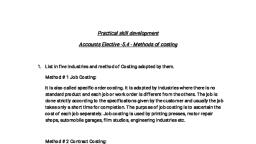Page 1 :
UNIT- Iv], 4, CONTRACT COSTING, , , , Contents, 4.1. Introduction, 4.2 Features of Contract Costing, , 43 Types of Contracts, , 4.4 Elements of Contract Costing, , 4.5 Distinguish between Contract costing & Job Costing, 4.6 Cost-plus contract, , 47 Proforma of Contract Costing, , 48 Points to Remember, , 4.9 Solved problems/IIlustrations, , 4.10 — Self-practice., , 4.1 Introduction:, , The another terminology for contract costing is terminal, costing. Contract costing is same like job casting but in contract casting, the work is get done one site. Basically contract casting is used in civil, construction work. It deals with all the businesses in which civil works,, interior work etc. are included. Each contract is a separate cost unit., contract related to the construction work take time to complete. A, subcontract can be given as per the requirement of the client. Examples, of contract are construction of roads, dams, bridges, buildings, etc., , 3.4 Features:, , 1 There is a separate cost unit for each contract, 2 The execution of contract is done on the site of customer. ,, 3 The execution of contract is done as per the demand of the, , customer.
Page 2 :
Contract Costing 299, , >, , 10., , 11., 12., 13., , 14,, , 15., , 4.3, 1,, , ‘The time duration is more because of large work or big site., , In government projects raw material is provided to the contractor and amount get deducted from accounts bills., , Each and every contract is maintained separately so that profit, can be calculate easily., , ‘The stepwise payment issuing process in there, contractor did, , the work as per requirement and payment has been given an, installment., , No provision of full payment before workdone., , Certain amount is refunded as retention money and other, deduction are made for item, supplied by contractee, income, tax, security deposit etc. while payment of each installment., , Certain contract or some part of contract can be given to sub, contractors., , Labour and material are chargeable to the contractor., The progress of work and its value measures once a year., , Sometimes the contract take more than one year for completion, in that case each year profit is estimated., , Plant and machinery used for contracts is debited to conract, account and then credited at reduced value at the end of year., , Penalties for late completion of contracts, escalation of costs,, claims for various reasons, are normally found in contract, costing., , Types of Contracts, , Fixed price contracts :, In this type of contract price of contract get decided before, , starting the project. The contract price is decided by the contractor, and contractee before the commencement of contract., , The agreed price paid to contractor after deduction of defects, , and delay in contracts Extra payment is made for additional work, which is not included in the contract.
Page 3 :
300 Cost Accounting, , 2. Contracts with escalation Clause :, , It has been done between contractor and contractee on mutual, base. The escalation claue means, if there is a hike in material in future, the party has to give extra charges or payment and if there is deflation, then the contract price can be decreases. This escalation is determined, accounting to mutually pre-determined formula. :, , 3. Cost plus contracts :, , In this method the contract price is not fixed in advance, contractee, pays for the actual cost incurred by contractor. Over and above the costs, a fixed percentage of cost is paid as profit., , 4.4 Elements of Contract Costing :, 1. Materials:, , There is no special interest of contractee in providing material to, the contractor. The contractor himself purchase the material and he can, maintain invoices of those material for his own calculation. Raw material can be purchased by any of its link but the quality of material can, be checked by the contractee. The return of material also involves no, departure as already discussed before the contract. Transfer of, material can be done but it can be done by the transfer note. Somehow, surplus material can be sell. Any balance will naturally belong to the, contractee., , 2. Labour :, , All the workers who are working on the site whether they are, supervisor, Labours etc. are treated as direct expensive in few areas,, and Supervisors are treated as indirect expense but in contract they are ©, heated as direct expense. Their salaries or wage are given them on, weakly basis no fixed payment alloted for them and contractor looks, after there salaries and fund management., , 3. Direct expenses :, The expenses involve particularly for a single contract are treated
Page 4 :
Contract Costing 301, , as direct expenses and are chargeable. For eg. A company is hired, for a special contract will be charged by the company directly, because they have to delivered that contract which involves everything, into it therefore it is considered as direct expenses for that they charged, by the hire charges or of fees paid to expert for consulting him as, regard to a specific contract would be treated as direct expense., , 4. Indirect expenses :, , If a contractor is engaged in more than one or two contracts., He/she established a common office for all his work, where he set up, the infrastructure and staff. He/she is compeled to give salaries to, the staff because all the work going on by the contractor and account, get maintained by that staff. So the salary paid by the conract, considered as indirect expense., , 5. Plant and Machinery :, , Contractor has to purchase various machinery during his, work and the common assets are to be depreciated while on work,, those are bulldozers, cement mixer, mobile crane, tractors, lorries, and tiles polishing machines. There are certain ways to deal with the, plant and machineries used on a conttract., , 1. The machinery purchased specially for a particularly, contract to be used for longer duration, the contract account is, debited with the value of plant. At the end of the accounting period,, the depreciated value of the plantor machinery. is credited to the, contract account., , 2. When the machinery is used for a shorter duration on a, contract, the contract account is charged with the depreciation of, the plant or machinery., , 6. Sub-contract cost :, , Work for specific character, where contractor is not dealing, , with it or he don’t have specialities to complete that work it is offered, _to a sub-contractor. For eg. : Steal work, glass work, electric fittings,, door and furniture, feltings, plumbing, painting, etc. This all work done
Page 5 :
302 Cost Accounting, , by the subcontractor who is accountable to the contractor. The cost, of such work is charged to the contract account., , 7. Cost of extra work :, , Sometimes contractor is requested to do extra work by the, party which was not in the contract, so at that time contractor, charged extra money for that work. The cost of such extra work or, job is debited to the contract account and extra price realised is, credited to the contract account., , 8. Retention Money :, , Usually the client or contractee mentioned in the contract deed, that he will hold a specific amount untill and unless the contractor, complete the contract ona given period of time and he also mentioned, that the amount of money will be given step by step. If the contractor, will not complete the work or run away the contractee is secured, with an amount of money. If safe guards the interest of the contractee, against the contractor, who may at time perform sub-standard, work and gain there from., , 9. Cost of maintenance periods :, , Contractors are required to maintain the work during a, specified period after completion, the cost of maintenance is also, debited to the contract account., , 10. Progress payment :, , For bigger/Larger contract, contractee pays the money after, completion ofa certain stage. In these contracts contractee gives target, based work for eg.:- for the contruction of auditorium contractor, started his work from foundation level after completion of foundation, the submitted a progress report after that contractor see the work and, , release the payment., , «, , 11. Escalation clause :, This clause is oftenly provided in contracts to cover any likely, changes in the price of materials, labour, etc. so that contractor has
